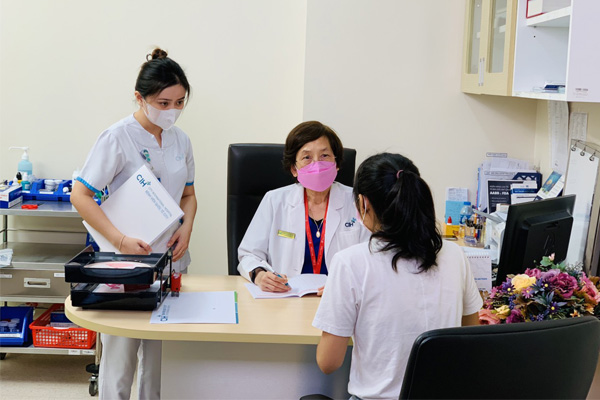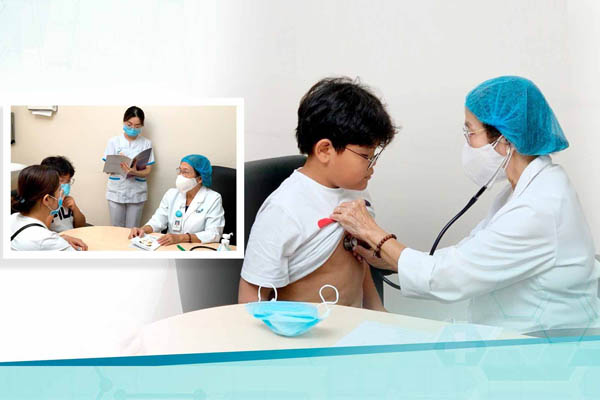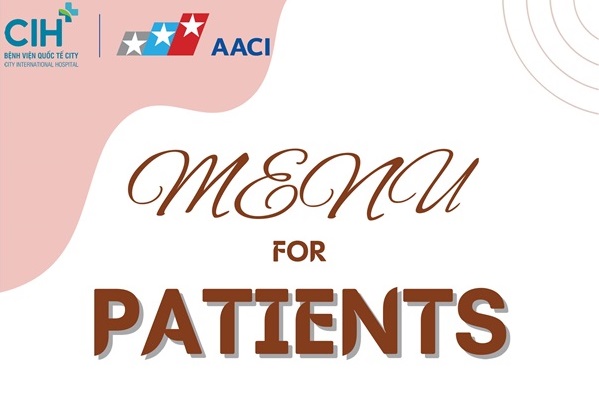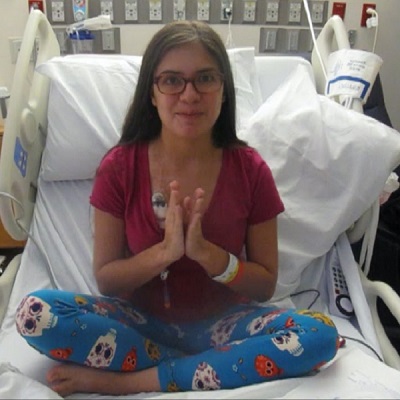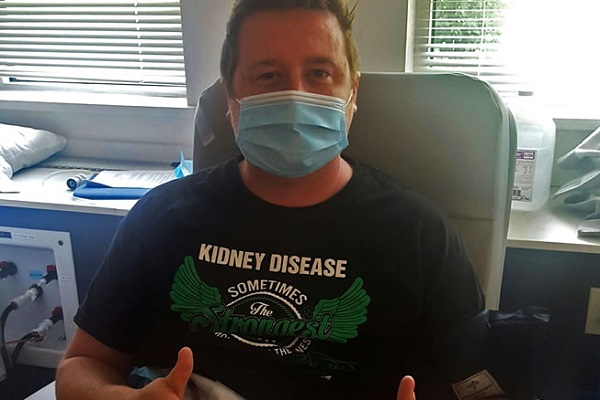Although the rainy season has ended, Pediatric Department of City International Hospital still receives patients with dengue symptoms, complications are particularly serious.
Dengue fever is common in children from 4 to 9 years old. However, in recent years, dengue has been reported in infants less than one year old or infants, although the rate is not high about 5-6% of children with dengue fever hospitalized at City International Hospital. Clinically, it is difficult to diagnose infants with dengue because they are too young to unable to express symptoms, clinical manifestations that overlap with other pathologies, as well as complicated situation and easy to get shock, difficult to predict the occurrence of shock and difficult to predict the results of treatment.
On the other hand, the severity of infancy is due to the biological characteristics of this age: the proportion of body fluids accounts for a large proportion of body weight and the need for a larger daily fluctuation; cardiovascular and kidney function is continuing to develop, unlikely to adapt to disorders; Finally, capillary permeability is greater than children and adults, so infants are more prone to early cardiovascular dysfunction and are more likely to fluid overload than children and adults. Treatment of cases of severe dengue fever in infants is not as simple as with older age, partly due to the complexity of the infant's disease is unpredicted, infants have weak resistance, infants are very difficult to determine intravenous line (difficult to find veins), and have to inject many time .

There are cases that infants with dengue fever do not show any symptoms
Dr Nguyen Bach Hue, Head of Pediatrics Department at City International Hospital said that in recent days, she had some cases of warning severe dengue fever, such as when an 8-year-old boy was hospitalized with a fever, nosebleeds, skin bleeding, internal bleeding and shock. In addition, dengue encephalopathy is also a serious case.
"Dengue cannot be lack of concern because it can lead to serious complications. Worried about complications of encephalitis, meningitis. These complications will affect the central nervous system, leaving behind sequelae if not treated promptly, "Bach Hue shared.
Dengue fever can be cured after 5 to 7 days, when the fever stops. But there are many cases of complications and if not detected in time can lead to death very quickly. Especially among complications of encephalitis. In addition, if plasma is released from the blood vessels also endangers the patient. Even hemorrhaging due to complications can lead to internal bleeding, bleeding of the abdominal organs and even a very serious brain hemorrhage.
Signs of dengue fever warning
Dengue haemorrhagic fever usually goes from day 3 to day 7 after fever. Signs of severe disease will be put to the examination of multiple hemolymphs will lead to shock state with manifestations such as: bruise, rupture or lichen, cold extremities, cold, wet skin, fast lane; Blood pressure is trapped with maximal blood pressure and blood pressure at least 20mmHg; Blood pressure drops or is not measured; little urine. Hemorrhagic symptoms can occur in the subcutaneous, mucosal, and viscera.
In addition, signs of subcutaneous haemorrhage are manifested by scattered sputum or hemorrhage often found on the front of the legs and on the arms, abdomen, thighs, ribs or bruise. Signs of mucosal bleeding are characterized by nasal bleeding; bloody urine, prolonged menstrual period or menstrual period earlier than expected. Signs of internal hemorrhage can be seen in the digestive system, lungs, brain; This is a serious sign. In addition, some severe cases may manifest as organ dysfunction such as severe hepatitis, encephalitis, myocarditis. These severe manifestations may occur in some patients with no evidence of significant bleeding or shock, so clinicians should be cautious.
Currently, dengue fever has no vaccine to prevent disease and specific drugs for treatment. Clinical manifestations with pathological symptoms are quite diverse and rapidly changing from light to heavy. The level of disease progresses from dengue to severe hemorrhage unforeseen. Therefore, the health sector has worked closely with the local community to carry out surveillance and prevention activities in a strict manner.
Dr Nguyen Bach Hue warns that when detecting signs of suspected dengue fever, it is necessary to immediately seek medical examination, diagnosis and treatment; Any delay can lead to the risk of death when serious complications occur.
? Address: City International Hospital: No. 3, 17A Street, Binh Tri Dong B Ward, Binh Tan District, Ho Chi Minh City.
Tel: (028) 6280 3333 (Press key 8469) to meet the operator.
? Website: www.cih.com.vn













